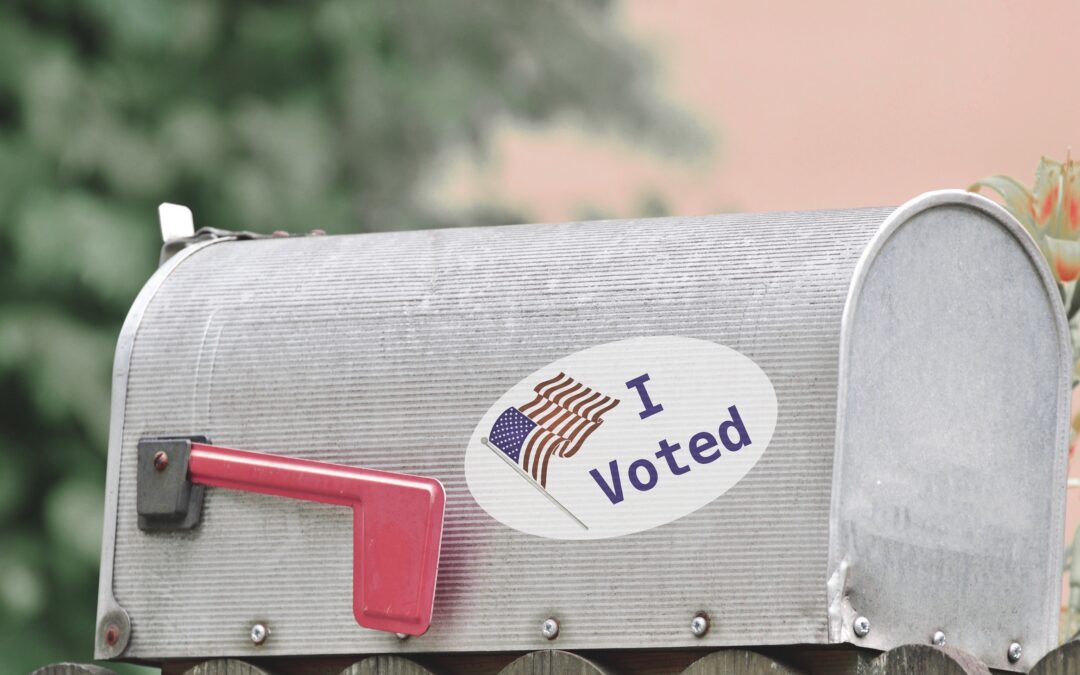
by admin | Mar 25, 2021 | Misc, News and Updates
With just over two months under his belt since taking office, President Biden’s hand has to be getting tired. So far, he has signed 37 executive orders, 13 presidential memoranda, 24 proclamations, and seven notices. In his first two weeks alone, Biden had already signed more than double the number of executive orders signed by President Trump in his first month.
And isn’t it funny? After four years of lambasting Trump’s executive orders as authoritarian or an abuse of power, the left and the mainstream media have been silent about Biden’s.
There’s no saying how far our current president will go with these actions, but if the first two months are any indicator, it will only get worse. Despite Biden’s pandering calls for unity, his executive orders have been divisive and partisan.
On his first day as president, Biden signed an executive order to disband the 1776 Commission, an advisory committee established by Trump to support patriotic education. This more than likely signifies Biden’s support for the 1619 Project, a “history” curriculum that has already drawn some ire here in Arizona for its claims that the United States was actually founded on slavery in the year 1619.
But Biden didn’t stop there.
A couple days later, he signed another executive order that strengthens the power of federal labor unions. He paused new oil and gas leasing on federal lands and waters to help tackle the “existential threat” of so-called climate change. And he instituted several policies supporting illegal immigrants. The list goes on and on…
Thankfully, a bill that passed through the Arizona House is seeking to combat these executive orders. HB2310 allows a member of the legislature to request that the Legislative Council review a Presidential executive order and recommend that the Attorney General further investigate the order. If the Attorney General determines that the executive order is illegal, HB2310 requires him to file action in federal district court.
And Arizona is not the only state taking such actions. Recently, HB1236 passed through the House in Oklahoma, where state legislators plan to review executive orders regarding the pandemic and the halting of the Keystone XL Pipeline, to name a few. In fact, just yesterday, Oklahoma joined 13 other states to sue the Biden administration for the executive order in January that paused new oil and gas leasing on federal lands and waters.
Arizona should stand with states like Oklahoma to help lead the way in fighting the overreach of the Biden administration. Now, it’s up to the Arizona Senate to do its part by passing HB2310 and sending it over to Governor Ducey’s desk. Our state should never enforce any unconstitutional executive orders. And President Biden must be held accountable if and when he signs them.
By passing HB2310, our lawmakers can make it clear that in four years Biden’s hand may not be tired, but his feet will be worn out from standing in court.

by admin | Mar 23, 2021 | Elections, News and Updates
Democrats in D.C are targeting the elimination of state voter ID laws with the passage of H.R 1, despite Arizona and 35 other states currently requiring it. More importantly, voters support it. In a recent poll, 75% of likely voters said they support requiring photo ID before voting. By party affiliation, 89% of Republicans, 77% of unaffiliated voters, and even 60% of likely Democrat voters support this requirement.
Yet in Arizona, ID requirements extend only to in-person voting, where voters are expected to show either a photo ID like their driver’s license, or a document that includes their full name and current address such as a utility bill. For early, mail-in ballots? Simply a signature.
In the professional and criminal investigation world, analysts who verify the authorship of handwriting have degrees in forensic science and spend two years under the training of experienced analysts. But for elections, election staff is tasked with verifying signatures and do not require these professional credentials. At a volume of millions of ballots, election staff are gazing at thousands of ballots each, potentially spending mere seconds comparing what they see on the ballot and what is on their computer screen.
Additionally, people’s handwriting changes over time. They might get an injury, develop a disability, or their style simply changes over time. Experts in crime labs can spend hours poring over documents to compare several samples, but election staff must quickly make a subjective judgment of the match based on one sample. This is not a sufficient measure for something as important as elections, especially considering Arizona expects voters to provide ID if they vote in person.
Sponsored by Senator Mesnard, SB1713 brings our mail-in ballot system up to par with in-person voting by requiring voters to simply write their date of birth and either their driver’s license number or voter registration number in addition to their signature. This provides an objective measure to ensure the identity of voters and removes some of the subjectivity, with no burden to voters.
The left and media claim that asking voters to provide this information in addition to their signature is “voter suppression” and “racist.” Americans aren’t buying it—not even their own electorate.
In the corporate world, businesses focus on the “Fraud Triangle” in attempting to mitigate fraud within their organization. The triangle consists of three main ingredients required for fraud to occur: opportunity, incentive, and rationalization. The only controllable factor in this triangle is opportunity, or the ease at which someone can commit fraud.
Applied to elections, and specifically to mail-in ballots, signatures being the only identifying feature poses great opportunity to nefarious actors. Regardless of how frequently this opportunity is seized, or if it is at all, by simply bringing mailed ballots to the same standard as in-person voting we can greatly reduce this opportunity without limiting access to voting.
SB1713 does exactly this. It is a reasonable and meaningful election integrity reform based on a proven practice—voter ID—that is overwhelmingly supported by voters. This is a must pass reform that the Legislature and Governor ought to prioritize to increase the integrity of our elections.

by admin | Mar 18, 2021 | Misc, News and Updates
How much longer will the government allow Facebook, Twitter, Google, Amazon, and Apple to run amok? Is their penchant to play speech police enough? Google-owned YouTube has a history of deplatforming and demonetizing conservative organizations. And by now, you probably know that Twitter didn’t hesitate to ban President Trump while he was still the President of the United States.
Or what about their influence on this past November’s election? Facebook’s Mark Zuckerberg alone gave hundreds of millions of dollars to election offices to influence local elections. And as you can probably assume, it wasn’t to ensure the process remained fair and nonpartisan.
Or could it be Big Tech’s uncanny ability to collude with each other to serve their own interests? Just ask Parler how it went when Apple, Google, and Amazon conspired to remove the new social media company from the internet—an objective that Apple still appears to be committed to.
Big Tech companies are out of control, and it’s time for the government and our lawmakers to do something about it. Consumers rightfully expect a free marketplace where all individuals and companies can compete on a level playing field. But these Big Tech companies are becoming increasingly monopolistic. And while it was good to see 46 states, including Arizona, join the Federal Trade Commission to sue Facebook for such practices this past December, more work needs to be done.
Now, Arizona can play a key role in this effort.
Since 1974, our state law has prohibited actions that seek to restrict or monopolize trade. Arizona’s government and lawmakers should be leveraging such laws to reel in Big Tech before the problem gets even worse. Thankfully, the Arizona Senate is now looking to do just that by taking an important step forward with SB1155.
The purpose of this bill is to appropriate $1 million from the Antitrust Enforcement Fund to the Arizona Attorney General to “investigate and bring enforcement actions against technology companies engaging in anti-competitive, anti-consumer, or monopolistic behavior.” This would give the Attorney General the resources needed to litigate against Big Tech companies that violate Arizona’s antitrust laws.
And what better time than right now for such litigation to take place?
After all, Big Tech companies are gaining more and more power each day. And as they do, they will wield it on an even greater scale to stop emerging competition, stifle innovation, censor speech, and feed the fire of our current “cancel culture.”
That’s how we’ve gotten to where we are right now. And it’s going to get even worse if our government and lawmakers don’t do something about it. Just think about what that could mean for conservative voices and platforms—or even the next election.
It’s time for our state legislature to act. Arizona companies and consumers are being harmed by the Big Tech monopoly. But this can all be changed if lawmakers ensure everyone—including these tech companies—abides by the American principles of free speech, fair competition, and equal opportunity.

by admin | Mar 17, 2021 | News and Updates, Tax
Championed by the left as a win for the people, the Democrat COVID “relief” plan is little more than a blue state bailout with handouts to special interests and expansion of progressive policies. As if the billions of taxpayer dollars being funneled away wasn’t enough, Schumer snuck a provision into the package that would prohibit states from cutting taxes and providing relief to their taxpayers. Not just this year, but through 2024.
Yes, that means that in addition to only a dismal fraction of the “relief” going directly to taxpayers, further relief through state tax cuts would be barred.
It’s a simple principle: good behavior ought to be rewarded, and bad behavior punished. Yet the Democrat’s blue state bailout does the exact opposite, extracting billions from states that budgeted responsibly and mitigated economic shutdowns while rewarding blue states whose budget shortfalls are of their own making – stemming from bad policies pre-pandemic and even worse during the pandemic.
Initially packed with $140 million for Pelosi’s Big Tech pals in Silicon Valley and a bridge to nowhere, the $1.9 trillion Schumer-Pelosi package was still passed with $350 billion to flood blue states, $1.7 billion to Amtrak, billions to expand Obamacare and bailout union pensions, $165 billion to schools that remain closed, and recklessly sends stimulus checks to prisoners and illegal immigrants.
Unlike states that completely shut down their economies, Arizona would be receiving federal funds on top of our billion-dollar budget surplus. With this flood of deficit backed billions, D.C is trying to run up state spending, creating unsustainable budget baselines all while tying our hands on tax policy.
By overreaching into the tax policy of state governments, Democrats are inspiring Republican legislatures to tie every future penny to block blue states from activities like tax increases, infringements on the Second Amendment, expansion of social programs, and many other preemptions to thwart the left’s agenda. In the words of Mitch McConnell, “you’ll regret this, and you may regret this a lot sooner than you think.”
Additionally, the move is completely antithetical to our federalist form of government and potentially runs amuck of the anti-commandeering precedent of the Supreme Court. James Madison argued the powers of the federal government are “few and defined” while the powers of the states are “numerous and indefinite” extending to all objects including “the internal order, improvement, and prosperity of the State.” How can we provide for the prosperity of the state if we are barred from touching our tax code for the foreseeable future?
Democrats running blue states are unsurprisingly upset from years of businesses and taxpayers fleeing their states and flocking to low-tax, pro-growth red states. Perhaps the plan is to make red states as bad as their own by preventing any tax cuts and eventually businesses and taxpayers will be trapped with nowhere to flee. Since their ship is sinking, they want to pull the whole fleet down with them.
Lawmakers should take a stand against Schumer’s infringement on state governments and the ridiculous non-pandemic related spending in this package and force a debate over whether we should be spending billions bailing out unions, special interests, and expanding progressive polices or return the money to taxpayers and create a pro-growth environment for small businesses. Common-sense and history say the latter.

by admin | Mar 11, 2021 | Misc, News and Updates
Reading, writing, arithmetic…these aren’t controversial topics, and neither should be the education of our children. Kids are supposed to go to school to learn life skills and become productive members of society. This isn’t complicated. And yet, schools are increasingly becoming the primary tool of a radical agenda to indoctrinate children in leftist ideology.
Take the 1619 Project for example. Various schools across the country have adopted a history curriculum centered on this series of essays from The New York Times,which claims that the United States was actually founded on slavery in the year 1619.
But the radicalization doesn’t stop there.
A school district policy in Madison, Wisconsin not only helps children adopt transgender identities, but it instructs teachers to lie about it to parents.
And right here in Peoria, Arizona, parents are dealing with similar frustrations after district officials denied them access to review learning materials that appear to be based on the principles of the Black Lives Matter organization.
In a year that’s already been challenging enough for parents as they’ve navigated through COVID, online learning, “sick outs,” and more, you would think that school districts would seek to build trust with them.
But apparently some public schools are too committed to their agenda.
Thankfully, the Arizona Senate is seeking to create more transparency through SB1058. This bill, which has now been transmitted to the House, requires district and charter schools to post a list of procedures used to review and approve learning materials on a prominent portion of their websites. In addition, they would also have to post procedures by which a parent can review learning materials in advance.
But what about district and charter schools that do not have such procedures? They would have to clearly state this on their websites.
While Arizona law currently allows for parents to review learning materials, the process hasn’t always been easy. And many parents have grown frustrated by officials who block access to curriculum.
But SB1058 would allow for more transparency from schools without burdening the staff. This should be a win-win for everyone involved, except of course for schools that have something to hide.
After all, any school that’s currently featuring the 1619 Project as part of its history curriculum probably doesn’t want parents to know that several renowned historians have criticized it for being inaccurate and pushing a false narrative. And they also probably don’t want them to know that Nikole Hannah-Jones, the architect behind the 1619 Project, has admitted that the whole point behind it is to make an argument for slavery reparations.
But a bill like SB1058 would help bring this to light. And while more work needs to be done, this is definitely a step in the right direction. Parents have a right to know if ahistorical and fringe topics are being taught to their children. And now the House needs to pass this essential piece of legislation to give parents the transparency they deserve from the schools their children attend.






Recent Comments